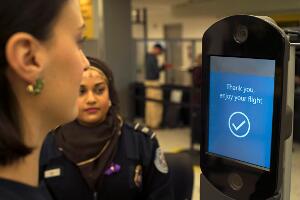The recent revelation that Clear AI had its list of customers stolen, and thus assumed compromised, reminds us of the sensitivity which facial recognition has to our personal privacy.
As many who have entered into a US port of entry and engaged with a Customs and Border Protection (CBP) officer, your passport is scanned, you’re asked a few questions and you proceed into the United States.
Starting in November 2019, the CBP added a layer to their process - facial recognition of all crossing into the United States. All foreign nationals have been been photographed and their photos stored in a “secure” database controlled by Department of Homeland Security since 2018. The adjustment was to to have US citizens participate. Citizens could, however, opt out should they desire.
The CBP’s press release highlighted: “It is not mandatory for U.S. citizens to have their photo taken. If U.S. citizens wish to undergo alternative screening procedures for identity verification, they should advise the CBP officer when they approach the primary inspection area.”
Needless to say, capturing of facial images of US citizens to enter their own country didn’t go down well, and when an ACLU lawyer, Shaw Drake, tried to opt-out, well things went south in a hurry.

Apparently the CBP officer hadn’t gotten the memo on US citizens opting out as detailed in Drake’s write-up. Drake noted, “If I, carrying all the privilege of a white ACLU lawyer, could not opt-out of the invasive technology, what chance do other travelers — and particularly people of color — have to assert their rights?“
Days later the CBP announced their intent to bag the option concerning the capture of US citizens’ facial images at any port-of-entry. Foreign nationals will continue to have their images taken.
But there is a catch.
Airlines and cruise lines are adopting the facial recognition technologies and are tying these into that of the CBP’s simiplified travel technologies which fall under the “Traveler Verification Services (TVS)” which has been around since 2018.
“The simplified travel process is based on CBP’s sophisticated facial biometric matching service that airlines and airports can harness to provide a seamless, paperless, and more secure experience for arriving and departing air travelers. CBP’s matching service provides confirmation of a traveler’s identity in two seconds or less.”
So know, when you use that facial recognition boarding technology for your next international cruise or flight, your photo may be processed by CBP’s TVS. Which brings us back to Clear AI.
Now it is important not to confuse Clear AI with airport security facilitating service Clearview. While we at Securely Travel have no way, at this time, to determine if DHS/CBP is a customer of Clear AI, we do note that the company has scrapped billions of publicly available photographs from various social networks for the purpose of having those images used by law enforcement.
Indeed, Clear AI proudly notes their robust corpus of data is ONLY available to law enforcement and select security investigators - all for a fee of course.
So while you, the US citizen may not have to have your facial image captured at U.S. ports-of-entry, you may be a part of the Clear AI corpus which is available to DHS and other law enforcement entities.
It is important to recognize that this whole discussion only applies to privacy within the United States. Other countries may not have the transparency of process which the U.S. enjoys, and digital image capture may be much more intrusive than DHS/CBP processes.
Clear AI lawsuits
Clear AI’s business methodology has drawn the ire of many. Twitter and others have requested Clear AI cease their scrapping. Two separate class-action law suits have been filed this year challenging their right to aggregate and collate our identities and sell the output to law enforcement, without the opportunity to have due process. You can read these complaints below.
The first suit was filed 20 January 2020 - Levies an 11 count complaint against Clear AI.
The second suit, filed on 13 February 2020 - lays upon Clear AI a single count complaint alleging the company violates the Illinois biometric information statutes.
Read the latest from Securely Travel
No feed items found.
 Travel Securely Securely Travel
Travel Securely Securely Travel


